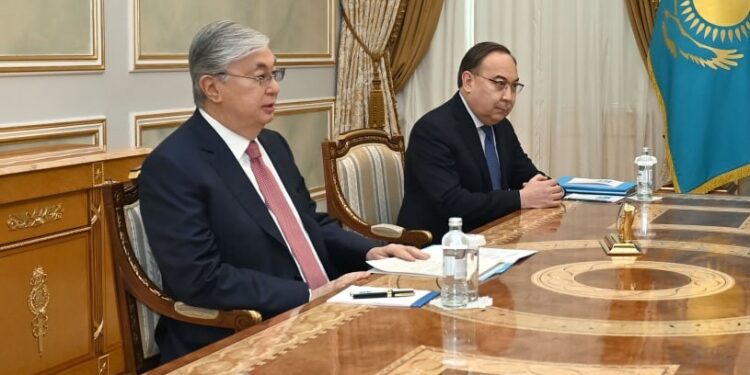The White House highlighted the strategic bilateral cooperation with Astana, following a successful meeting of the National Security Advisor, Jake Sullivan, with Kazakhstan’s Special Representative for International Cooperation, Erzhan Kazykhan, in Washington D.C.
The White House released this week an official readout of a very successful meeting, regarding Kazakhstan-USA strategic relations, which took place on January 23rd in Washington D.C., where U.S. National Security Advisor, Jake Sullivan, met with Kazakhstan’s Special Representative for International Cooperation, Erzhan Kazykhan.
“During the meeting”, the White House website noted, “the two reaffirmed the commitment of the United States and Kazakhstan to support the principles of the UN Charter, including the sovereignty and territorial integrity of all states. They also highlighted the strategic partnership between their nations and the cooperation on key bilateral and regional issues, such as energy security. The U.S. side reaffirmed U.S. support for Kazakhstani President Tokayev’s efforts to improve transparent, accountable governance in Kazakhstan”.
The U.S. Administration’s support for President Kassym-Jomart Tokayev’s sweeping democratic reforms in Kazakhstan is stressed two months after the re-election of Tokayev to a single 7-year term, with the overwhelming support of his people – 81% voted for him in the Presidential elections (the turnout was 69%). A few months before, on 5 June 2022, the people of Kazakhstan approved Tokayev’s proposal to amend one-third of the country’s constitution, in a nationwide referendum. The results were unambiguous too – 77% voted “Yes” (the turnout was 68%).
The reforms, aimed at transforming Kazakhstan from a super-Presidential state to a normative Presidential democracy, with a strong Parliament, an independent Judiciary, and an accountable government, were accelerated during the last 10 months. Barriers to the creation of new political parties were removed and lowered; a 30% quota for women and youth was mandated for electoral party lists; the death penalty was abolished; a new Constitutional Court was established, with full accessibility to every citizen across Kazakhstan; and the President’s powers were reduced, while his rule was limited to a single 7-year term without the right to be re-elected.
Family relatives of the President were voluntarily banned from holding governmental or semi-governmental positions, setting new ethical standards for the country’s future leaders, thus mitigating the risk of family and clan rule. The immune status of the country’s Human Rights Commissioner was secured by the constitution. And mixed Parliamentary electoral system was introduced, with the Senate (the higher house) being strengthened as a body that defends the interests of the regions, as well as various underrepresented social and ethnic groups. Meanwhile, the Majilis (the lower house), will be re-elected on March 2023, using for the first time in Kazakhstan’s political legacy, a mixed proportional-majority system with a ratio of 70%-30%. This will strengthen the legislature, increase democratic participation, and strengthen trust between citizens and the authorities.
Erzhan Kazykhan, the former Kazakh Minister of Foreign Affairs and ambassador to the U.S., the UK, Austria, and the U.N. is the Special Representative of the Kazakh President for International Cooperation, since April 2021. Jake Sullivan serves as the United States National Security Advisor to President Joe Biden since January 2021. He was previously Director of Policy to President Barack Obama, National Security Advisor to then Vice President Biden, and Deputy Chief of Staff to Secretary Hillary Clinton at the U.S. Department of State.
Reference:





























